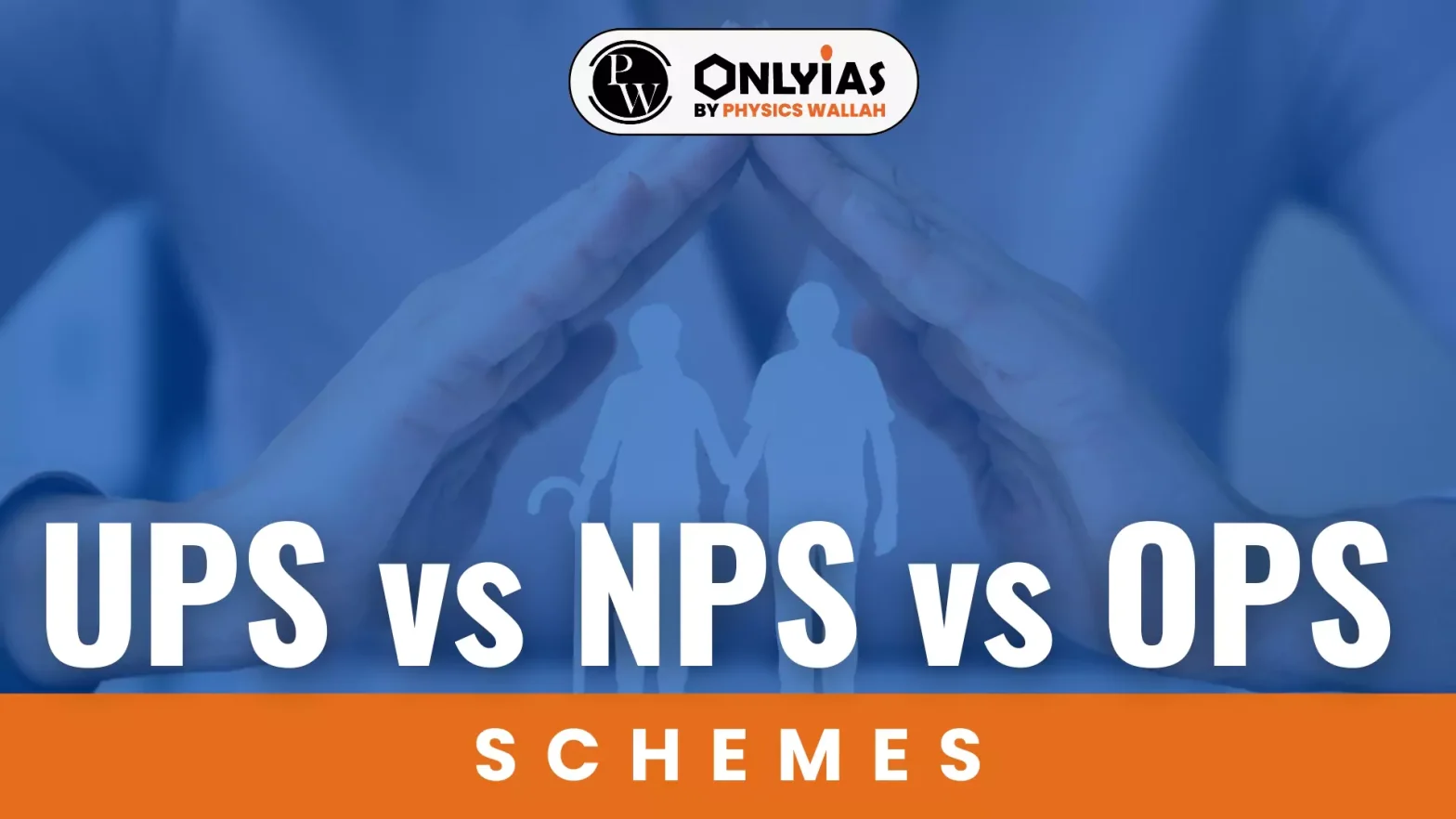Understanding UPS vs NPS vs OPS is crucial for employees when it comes to retirement planning in India. Know how UPS vs NPS vs OPS schemes will stack up against one another.

UPS vs NPS vs OPS: When discussing retirement planning and pension schemes in India, three popular options often come up: UPS (Unit-linked Pension Scheme), NPS (National Pension System), and OPS (Old Pension Scheme). After the criticism for removing the OPS, the government has planned to introduce UPS, effective from April 01, 2025. Each of these schemes has its unique features, benefits, and drawbacks. Understanding the differences between UPS, NPS, and OPS is crucial for making an informed decision.
Pension has always been a critical concern for government employees, offering both financial and emotional security. OPS guarantees a pension without requiring employee contributions. Therefore, the shift from the Old Pension Scheme (OPS) to the New Pension Scheme (NPS) in 2004 introduced uncertainty, as pensions became dependent on market performance. The Unified Pension Scheme (UPS) now offers a middle ground, where employees continue contributing 10%, but with the benefit of an assured pension, combining the security of OPS with elements of NPS.
To understand which one is best among UPS vs NPS vs OPS, it is crucial for employees to know more about them and their key differences.
The UPS full form is the Unified Pension Scheme. It is a relatively new introduction that combines features from both the NPS and OPS. UPS was introduced by the NDA government and will be effective in the next fiscal year, i.e. FY2025-26.
It aims to provide 50% from the past 12 months as their pension, along with other benefits like a family pension. Additionally, employees who serve a tenure of 25 years and more will be eligible for post-retirement inflation-linked increments.
The National Pension System (NPS) is a voluntary, government-sponsored retirement savings scheme that encourages individuals to save for their future. NPS is open to all citizens, offering flexibility in investment choices and providing tax benefits. Pension Fund Regulatory and Development Authority (PFRDA) launched the NPS scheme in 2004 as the government’s Pension Sector reforms, which depend on the performance of the selected funds.
The Old Pension Scheme (OPS) is a traditional pension plan where government employees are assured of a fixed pension based on their last drawn salary. Unlike NPS, OPS does not involve any market risks, and the pension amount is predetermined, offering financial security to retirees.
Each of these pension schemes has unique features that cater to different needs:
To make an informed decision, individuals can use a UPS vs NPS vs OPS calculator, which helps compare potential returns, tax benefits, and overall suitability based on individual preferences and financial goals.
When comparing UPS and NPS, one of the key advantages of the Unified Pension Scheme (UPS) is its higher government contribution rate of 18.5%, compared to the 14% offered under the National Pension System (NPS). This increased contribution in UPS can significantly enhance the pension corpus, providing greater financial security after retirement. Additionally, UPS offers a balanced approach, combining the benefits of both NPS and OPS, making it a more robust option for those seeking long-term financial stability.
Sign up for the PWOnlyIAS Online Course by Physics Wallah and start your journey to IAS success today!
UPS offers a mix of assured returns and market-linked benefits, NPS provides flexible market-linked returns, and OPS guarantees a fixed pension without any market risks.
OPS offers the highest financial security with a guaranteed pension, while UPS provides a 50% assured pension. NPS, though potentially lucrative, involves market risks.
Yes, NPS offers the most significant tax benefits, followed by UPS. OPS provides fewer tax benefits as the pension is taxable.
Currently, there is no provision to switch from OPS to NPS or UPS. However, new employees may have the option to choose between NPS and UPS based on government policies.
Family pension is available under UPS and OPS, while NPS allows the corpus to be withdrawn by the nominee in case of the subscriber’s death.
<div class="new-fform">
</div>